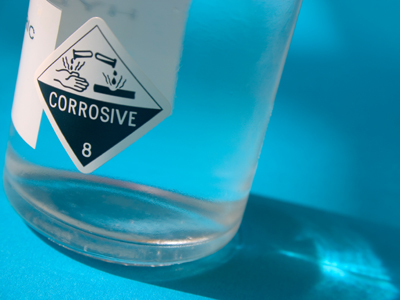

Acids, Bases and Salts
In this first quiz on GCSE Chemistry we take a look at one vital part of the subject - acids, alkalis, bases and salts. In it we find out the difference between alkalis and bases, how acids and alkalis react with one another, how neutralisation can produce salts and the relevance of pH values.
Acids and alkalis are incredibly important for manufacturing, and for everyday life. Some examples of things made using acids and alkalis are soaps and detergents, fertilisers, car batteries and medicines - you will have probably learnt a lot more examples during your lessons, as well as the properties of acids and alkalis. The most important of the reactions of acids and alkalis is neutralisation. Mixing the correct amounts of acid and alkali will result in a solution that is neutral because the two substances react together to produce water and a salt.
Alkali - proton donor
Alkali - proton acceptor
Alkali - proton donor
Alkali - proton acceptor
Ready for more?
not all...
quizzers. Try to win a coveted spot on our Hall of Fame Page.






